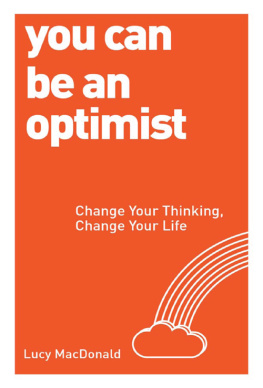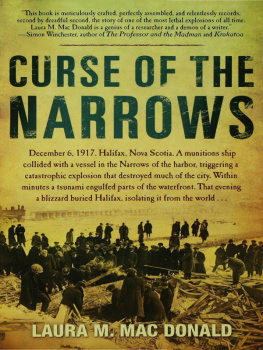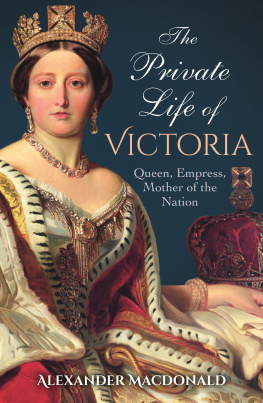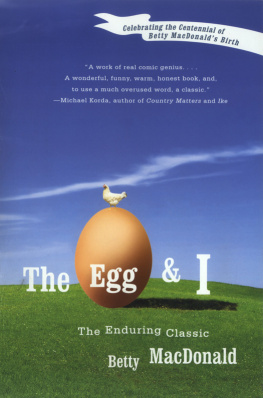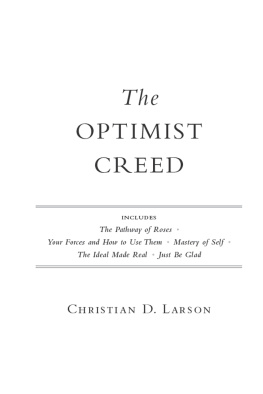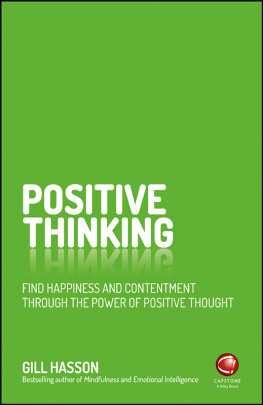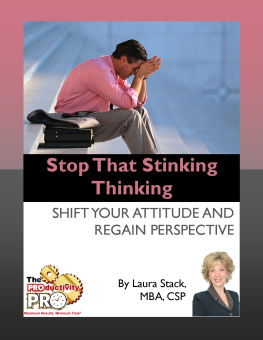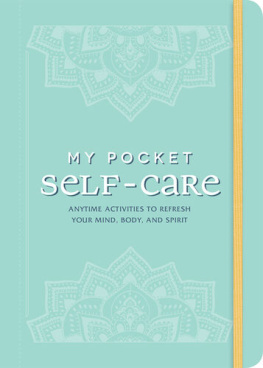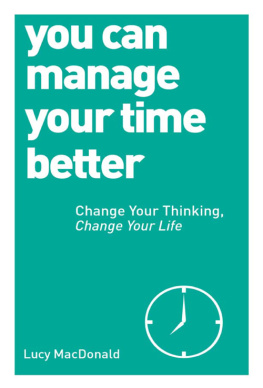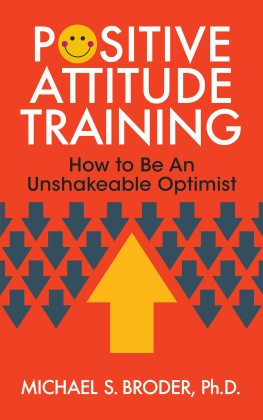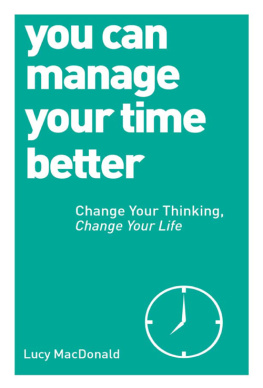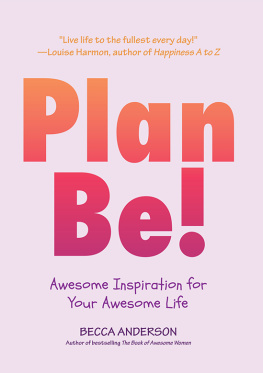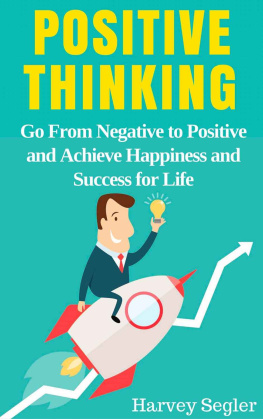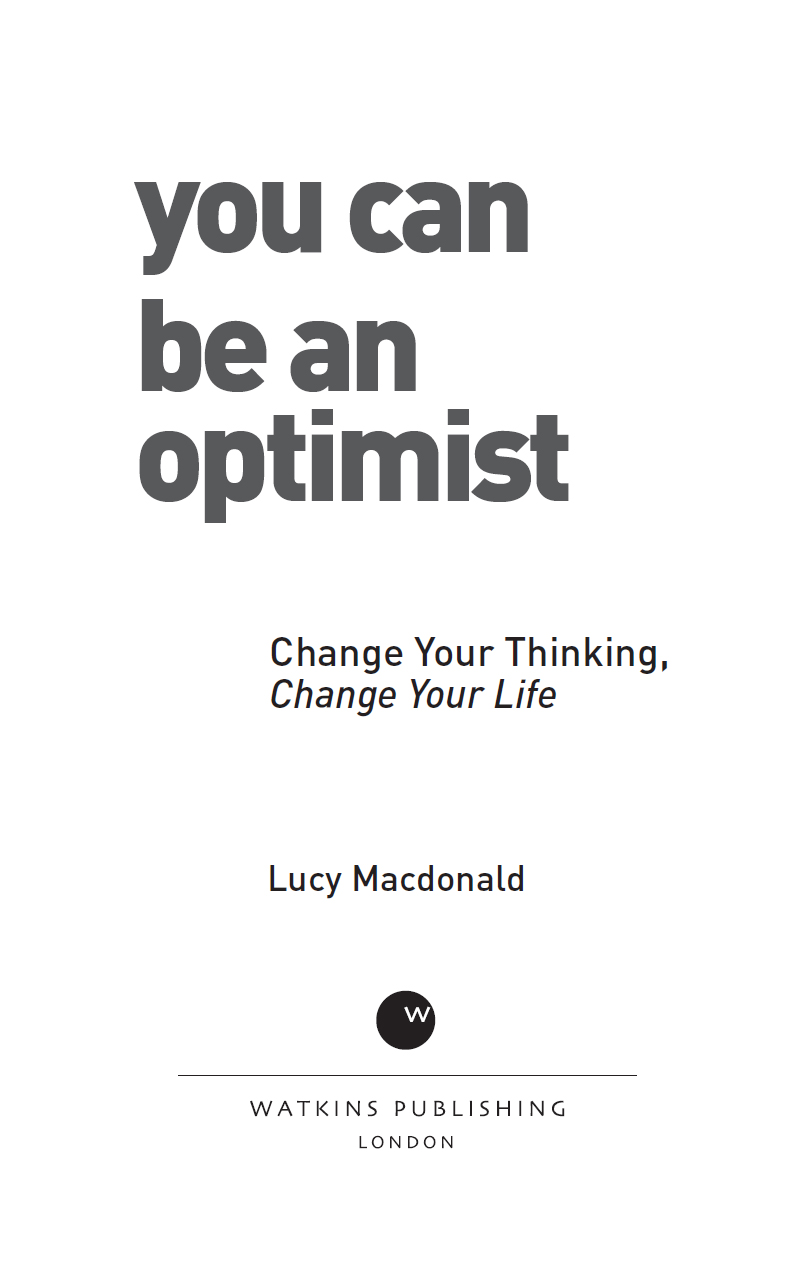Lucy MacDonald, M.Ed., runs her own practice as a counsellor, specialising in stress and anger management, emotional intelligence and the power of optimism. She is a member of the Canadian Counselling Association, president of Canadas Private Practitioners Network, and a well-known speaker throughout Canada.
With love, to my parents Bernard and Aline Filliol, my husband Rod MacDonald, and my children Clayton, Matthew, Amy and Laura.
Contents
Chapter 1:
Understanding optimism
Chapter 2:
Optimistic attitudes
Chapter 3:
Optimism and your physical health
Chapter 4:
Optimism and your mental health
Chapter 5:
Optimism in action
Introduction
I f you are a sceptic by nature, you will perhaps be doubting whether there is any point working through this book. However, before you put it back on the shelf and walk out of the store, ask yourself what you have to lose. Yes, you will have to invest a certain amount of time (and money) to buy and read the book and to do the exercises. If you come out the other side feeling much the same as before, you might consider that time and money wasted.
Now, consider what you stand to gain. If, as a result of working through this book, you are able to cultivate a more positive outlook, the rewards you will reap will be huge. You will be happier, more successful, better equipped to tackle challenges, and it is likely that your health will also benefit. I cannot offer any failsafe guarantee that this book will teach you to become an optimist, but I do know from personal experience that optimism is an attribute that can be learned.
For I have a confession to make. I am not an optimist, at least not by nature my default mechanism is pessimism. My pessimistic nature is part of my genetic heritage. I have, however, learned to become optimistic, and now I am a convert to the power of optimism in my daily life.
Meeting my husband-to-be at the age of 17 was the first time I became aware of optimism as a personality trait he was, and is, Mr Optimism! When I was 21, he encouraged me to continue with my education and declared his confidence in my ability to achieve whatever I wanted to achieve in life. Our subsequent marriage and the parenting of four children gave me plenty of opportunities to develop my optimism skills especially as three of my children were born within the space of four and a half years! My children have taught me more than I ever could have hoped to teach them: they taught me that by far the most important thing in my life is my family and that all the other stuff is, well, just stuff.
My next big lesson in optimism was during my university education. I returned to school full time at the age of 40, when my children were aged between eight and 18. By never losing sight of my goals, I maintained an optimistic attitude in the face of a daunting workload at school and at home. Those six years were a roller coaster of perseverance and hope culminating in undergraduate and postgraduate degrees in counselling psychology. My husband and children became the cheerleaders who spurred me on when discouragement and fatigue threatened to overwhelm me. Besides my family, my education is the thing of which I am most proud, and the thrill of that accomplishment will never fade. It is a testament to what a positive attitude, combined with a tremendous amount of hard work, can accomplish.
As a counsellor in private practice, I have the honour of witnessing the optimism and courage that my clients display as they struggle to deal with lifes challenges. Invariably, those who are able to find some tiny thread of positivity in difficult situations manage to hang on until the tide changes and they are able to experience happiness again. Unfortunately, the opposite is also true: those clients for whom pessimism is the modus operandi find it so much harder to recover from their troubles. Only when they develop a more optimistic outlook are they truly able to regain their equilibrium. It is not that optimism solves all of lifes problems; it is just that it can sometimes make the difference between coping and collapsing.
The process of writing this book is my latest lesson in the power of optimism. We most often teach what we need to learn. When I was approached to write a book about optimism, my spirits soared, then crashed. I felt honoured one day, scared to death the next. After thinking about it, I told my husband that I was going to turn down the offer I was not capable of completing such a task. You can do this, he told me. Just take it one day at a time and, before you know it, it will be done. Mr Optimism delivers again! Throughout the writing of this book my optimism skills, such as persistence and self-motivation, were put to good use. It would appear that I am destined to be a life-long student of optimism.
I have learned to become optimistic, and so can you. This book is designed to enable you to put in place the pillars of an optimistic attitude and to integrate optimism into your daily life. ), who specialize in optimism. Theres nothing particularly complicated about the science of optimism, but sometimes the most obvious things are the hardest to see.
Believe in yourself! Have faith in your abilities! Without a humble but reasonable confidence in your own powers you cannot be successful or happy.
Norman Vincent Peale (18981993)
My wish for you is that optimism becomes your constant companion a fine companion indeed.
Lucy MacDonald
Understanding optimism
O ptimism is a term that is familiar to us all, conveyed in commonplace images such as the half-full glass, the silver lining and the sunny side of the street. However, what exactly is optimism? What qualities does it comprise? How does it help you? Where does it come from? Can it be measured? How can you tell if you are an optimist? How can you learn to be an optimist?
In this chapter, we will answer all of these questions, drawing conclusions from the many studies conducted into optimism over the past 50 years. And we will explore the key components of optimism, such as emotional intelligence, self-esteem, resilience and happiness.
Understanding how optimism works is the first step in your journey toward a more fulfilled, happy and optimistic life. One thing that you will learn from this book is that there is no substitute for action. Take that first step now.
What is optimism?
O ptimism is a positive, upbeat attitude toward the world that sets you up for success in school, relationships, career, and life in general. It enables you to overcome lifes difficulties to bounce back and thrive. Daniel Goleman states in his book Emotional Intelligence (1995) that optimism means having a strong expectation that, in general, things will turn out all right in life, despite setbacks and frustrations.... optimism is an attitude that buffers people against falling into apathy, hopelessness, or depression in the face of tough going.
Martin Seligman, the father of learned optimism and author of several books on the subject, defines optimism in terms of how we explain to ourselves good and bad events using three dimensions: internal/external; permanent/temporary; and pervasive/specific. An optimist takes credit for good events [internal], believes that the positive effects will last [permanent] and that other aspects of his or her life will be affected [pervasive]. However, for bad events an optimist blames outside circumstances [external], maintains that the effects will not last [temporary] and that they are limited to this particular situation [specific]. The pessimistic explanatory style is like the photographic negative of the optimistic picture.

